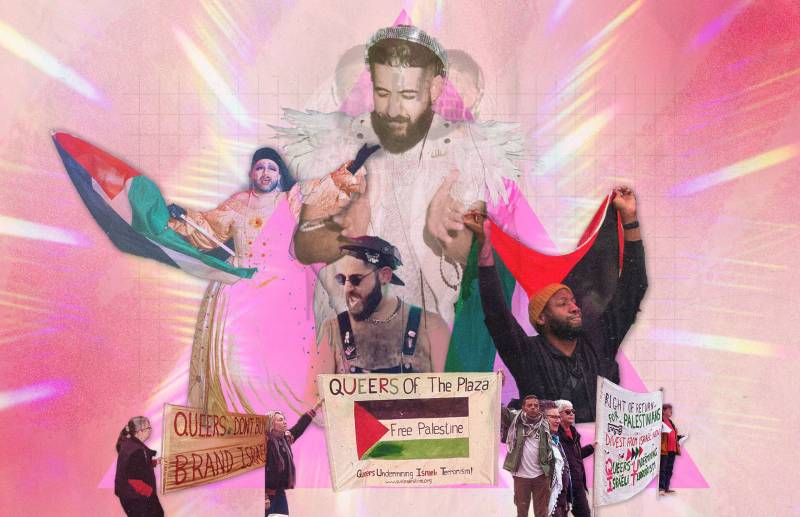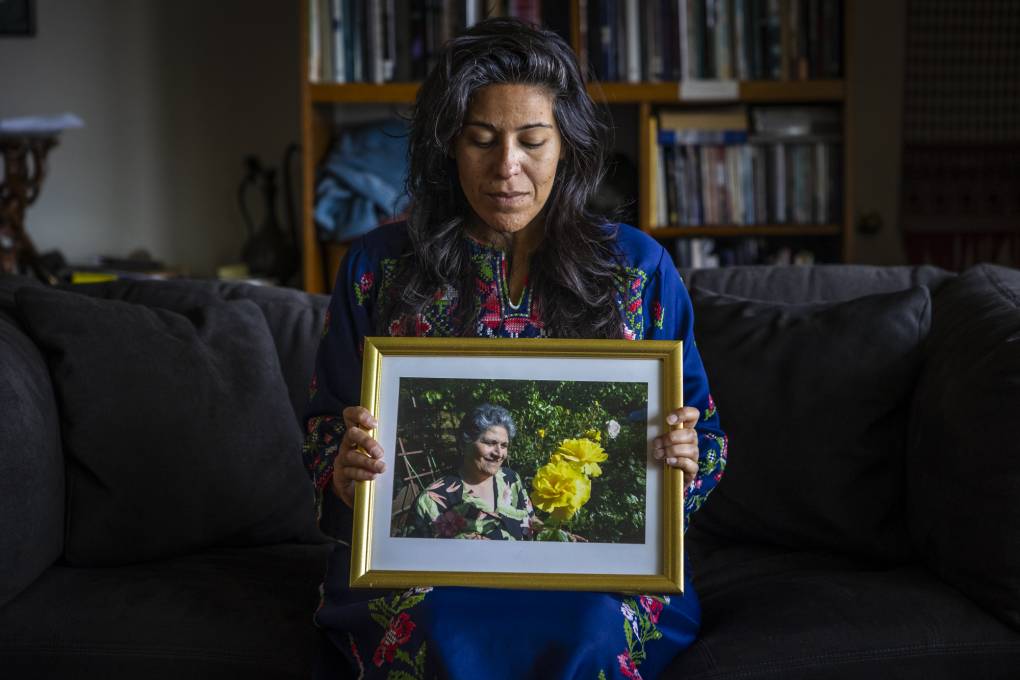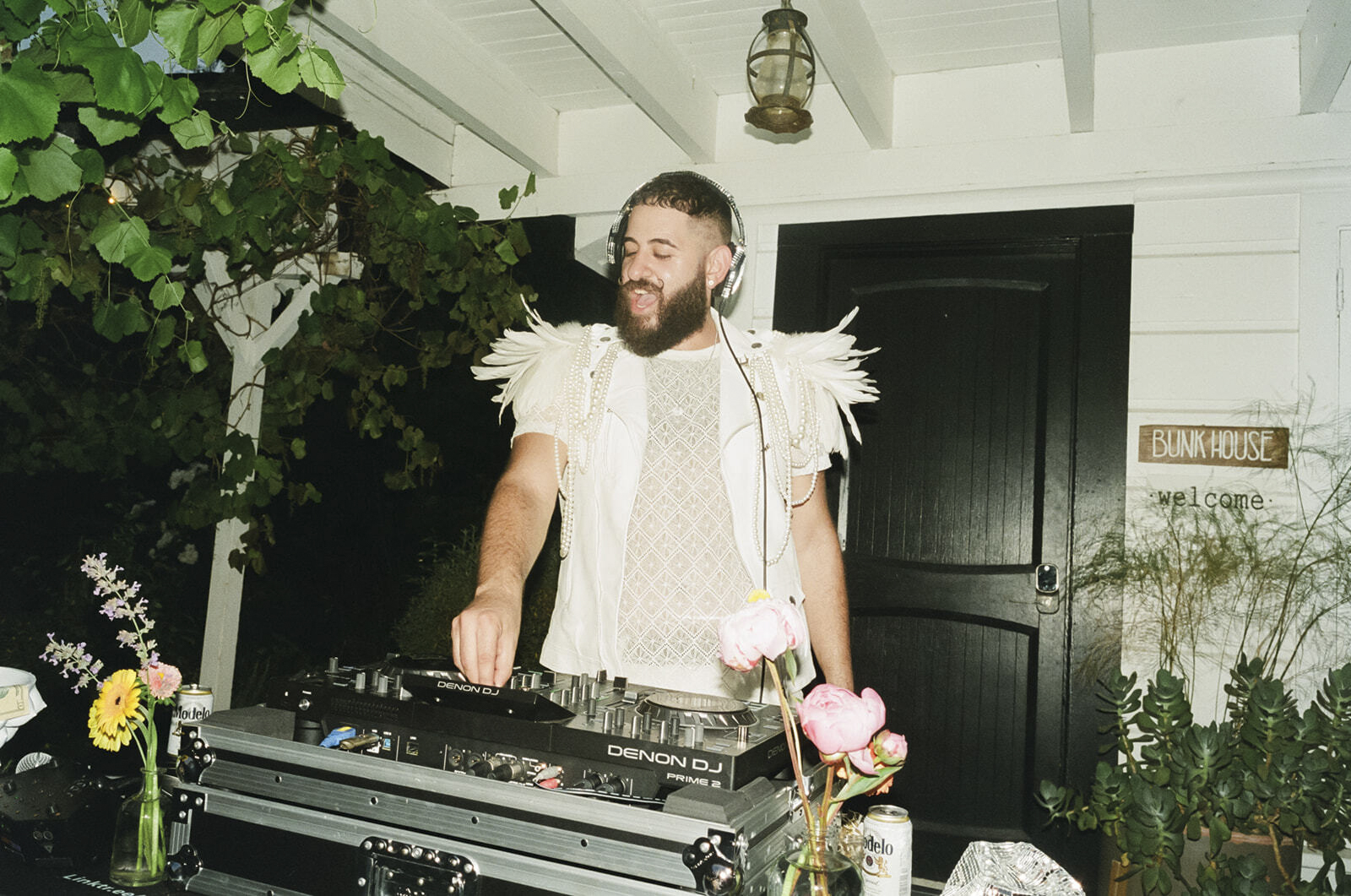Under the flashing lights of Oakland’s Continental Club on Oct. 29, San Francisco drag artist Mama Ganuush wears a flowing white gown and sweeps their hands passionately to the music — while clutching the Palestinian flag.
Mama Ganuush, who is African Palestinian, told KQED that members of their extended family have been killed during the months-long siege of Gaza by Israeli forces.
“This is resistance,” Ganuush said of their performance. “As Palestinians, our existence in this world is a form of resistance.”
Ganuush was lip-syncing to “Al Haq Silahi” — “The Truth is My Weapon” — by Lebanese artist Julia Boutros. Boutros wrote the song for Palestinians during the 2014 war.
“I feel like the Palestinian issue is a queer issue,” Ganuush said. “We always stand up facing oppression from authoritarian systems.”
‘Felt like I was coming out’
The shockingly high death toll and wide-scale destruction of Gaza has prompted crowds of Bay Area residents to flood the streets and block bridges in support of a cease-fire in recent weeks. One of these protests, on Dec. 2 in San Francisco’s Castro District, was organized by the group Queers Undermining Israeli Terrorism — or QUIT! — along with other members of the city’s queer community.
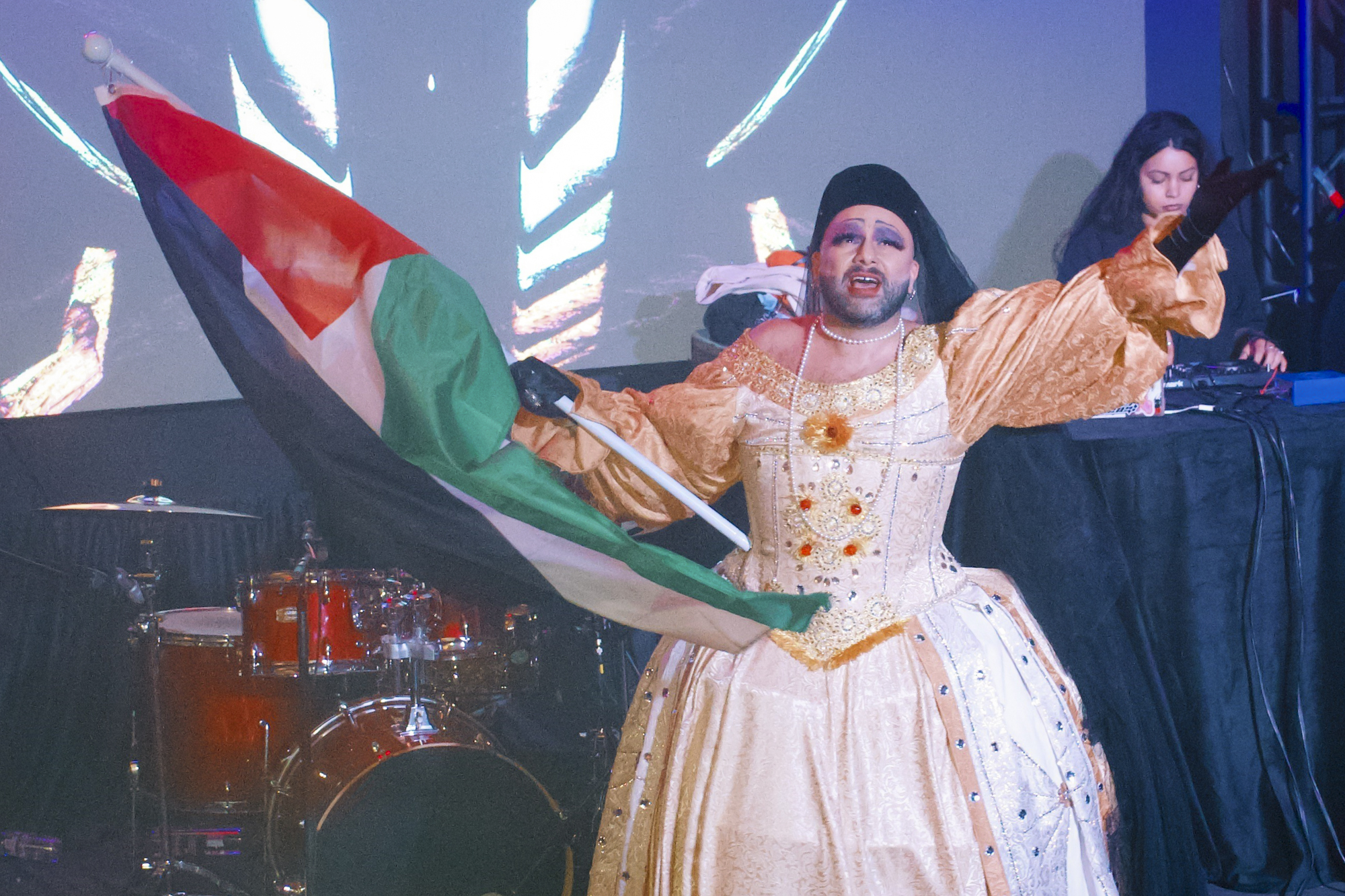
One demonstrator wrote the group a letter after participating in the rally, detailing what the experience had meant to him. Zak, a first-generation Palestinian who gave only his first name in his letter, told QUIT! that “Marching down Castro St with my flag and wearing a Keffiyeh felt like I was coming out, not as gay, but as Palestinian to the Queer Community.”
QUIT!’s current incarnation was founded in 2000. But as longtime group member Mindy Spatt explained, the pro-Palestine group has taken several forms over the years in support of other causes, or inspired by other groups: from Lesbians and Gays Against Intervention, organized around Central America, to DAGGER, (Dykes and Gay Guys Emergency Response), formed during the U.S. invasion of Iraq.
The group quickly evolved into an organization focused on supporting Palestinians, Spatt said, a cause that members like her have been politically invested in for a long time.
During a visit to the West Bank in 1990, an altercation broke out in the small town Spatt was staying in, she recalled. In response, the Israeli military enforced a curfew, prompting Palestinian children to march in the streets in protest.
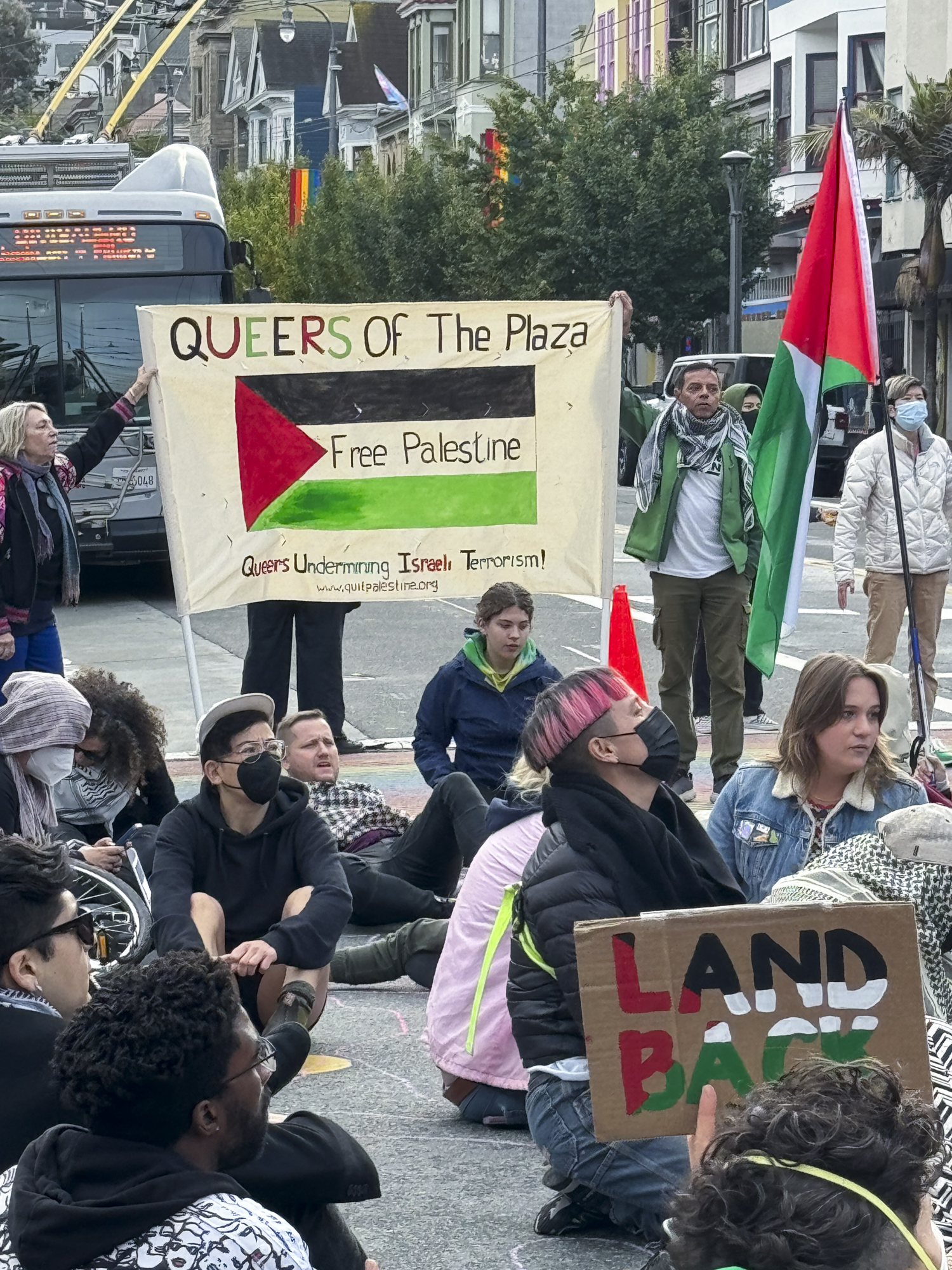
“I saw them shooting at a 12-year-old girl. No one could ever tell me they haven’t been killing children because I’ve seen it,” Spatt said. “As a Jew, it was actually really painful to me.”
Although it was not the only violence Spatt said she witnessed — it was the incident that resonated most strongly, leading to her activism with QUIT! back in San Francisco.
“There was all this stuff with the Israeli government promoting itself as this bastion of freedom for gay people,” Spatt said. “And we were like, ‘Well, really? Is it safe for Palestinian gay people in Israel?’ ”
Protesting ‘pinkwashing’
Last month, images of an Israeli soldier holding up a Pride flag amid ruins in Gaza began circulating on social media. The photos were heavily criticized by many queer advocates, who called them a form of “pinkwashing.”
Sa’ed Atshan, an associate professor of peace and conflict studies at Swarthmore College and the author of Queer Palestine and the Empire of Critique said pinkwashing refers to “when supporters of the right-wing Israeli state draw attention to a purported advanced LGBTQ rights record in Israel in order to detract attention away from Israel’s gross violations of Palestinian human rights.”
“It becomes a civilizational discourse that’s used to dehumanize Palestinians by pathologizing Palestinians as being homophobic,” Atshan said, “and therefore to attempt to justify the oppression that Palestinians face from Israel.”
Pinkwashing also ignores the struggle of queer Palestinians and the specific surveillance they face at the hands of Israeli authorities, Atshan said. Since the 1980s, “the Israeli security and intelligence services have been targeting LGBTQ Palestinians to serve as informants and collaborators,” he said. “They target vulnerable Palestinians. So, for example, a young woman who maybe had an extramarital relationship or premarital sex, and that is discovered, that could then be used against her to try to entrap or blackmail.”
